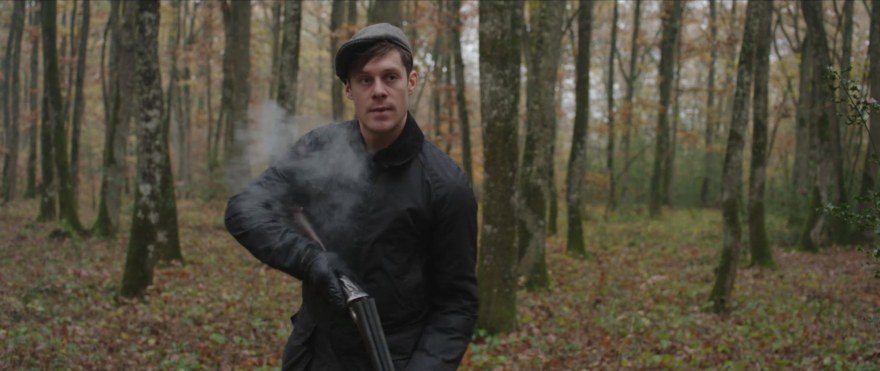Breakfast with La place du mort [The Dead Man’s Place]
Interview with Victor Boyer, director of La place du mort [The Dead Man’s Place]
What did you want to explore in the relation between the two brothers?
Initially, I was more interested in Samuel’s trauma rather than the relation between the two brothers: the death of one twin and the survivor’s arbitrary choice of identity. That past history made him a character with a fluid outline, and a faintly fantastical tint, so much so that when I was writing, I had fun imagining him as coming straight out of a story by Edgar Allan Poe or HP Lovecraft. There was this noir romanticism thing going on that I really liked in the character and also this incredible vertigo about identity. It was only later, when I was coming up with the character Alphonse, the son who’s adopted to take the place of the dead twin, that the film became a sort of cruel tale on the brothers’ rivalry with fratricide as a possible convergence line. Even though the tragedy belongs as much to the one as to the other (the one who lived through it and one who’s meant to make amends for it), only Alphonse has the ability to turn it into a story. Samuel is stuck in the trauma, whereas Alphonse takes advantage of it. That’s what sets off Samuel’s madness: the feeling of not only having his place but also his own history stolen from him. A sentence by someone whom I can’t recall now clearly illustrates this problem of the family story and the legitimacy of taking possession of it: ” A writer is the worst thing that can happen to a family!”
Are there any biographical or autobiographical elements in the story?
There are a few autobiographical elements in the film. For example, my little brother is genuinely a writer (but I never shot at him with a hunting rifle!).
Tell us a little bit about the set where you shot, the big house and the surrounding woods. How did you find them? What was it like shooting there?
The house where we filmed belongs to my grandmother. I had very vague memories of it as I hadn’t been back since I was a kid, but when I started writing the film, it was the one place that immediately came to mind. It’s a place where you can feel family secrets and ghosts oozing from every crack. But I came up with the secrets and the ghosts. Unlike the film’s atmosphere, the one on set was very joyous!
How did you work on finding the actors?
I already knew Corentin Fila, who’s a friend. For the part of Samuel, I took stock of the challenge that the film’s opening monologue represented, facing the camera, without any cuts, with a literary dimension. That’s what led me to suggest Christophe Montenez for the part. I’d seen him several times at the Comédie Française and loved his work, and I was sure he’d be able to deliver the speech as I’d imagined it. The first woman I met was Valentine Catzéfils who moved me in Jean Paul Civeyrac’s beautiful film, A Paris Education, and she introduced me to Anne Loiret, who plays Solange, the mother.
What are your future film plans?
I’m getting ready to shoot my final student film at La Fémis. The film brings together an industrialist’s family one evening, all gathered together in a manor house, cynically preparing the terms of survival in a world in flames, while an armed band of ecologists draws closer in the night to attack. The son and heir comes with his new girlfriend who, we find out, is an infiltrator…
Which works did you draw from?
I always find it a little overwhelming to put a film under the aegis of one or several guiding films. Let’s say it varies. For this one, I had Fanny and Alexander as much in mind as Step Brothers!
Have you discovered any advantages that the short film form offers?
I haven’t made a feature film yet, so I don’t have any point of comparison, but I think I make short films that are too long! And when I make films, the idea of freedom frightens me somewhat, I find it inhibiting to be able to do whatever you want. I find constraints, on the other hand, stimulating… Let’s say that I’m eager to change formats!
La place du mort [The Dead Man’s Place] is part of National Competition F5.








